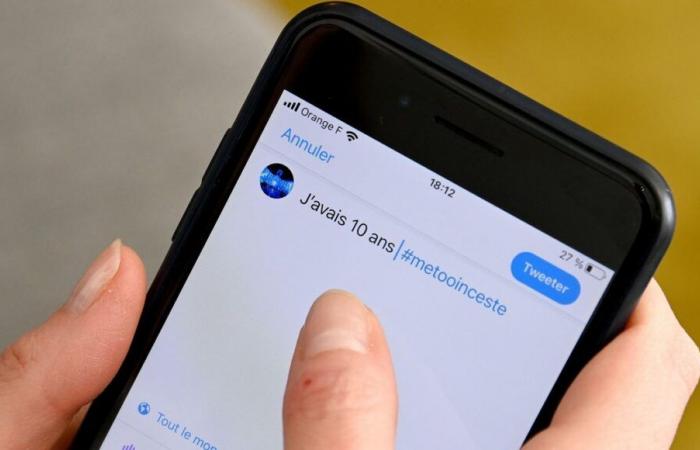“I think there will still be a long way to go before feeling a little more serene”confides Marie*. This Samarian managed to have her brother convicted a few weeks ago for sexual violence committed over the years, when she was still a teenager. The man was sentenced on appeal to eight years in prison by the juvenile court and if she speaks on France Bleu Picardie, it is above all to demand more prevention towards children, while a extensive communication campaign was launched by the government. Marie also encourages other victims to file a complaint.
France Bleu Picardie: you denounced what happened to you. What was the trigger?
The trigger came when I was with a companion. We had to enter into a civil partnership and I didn't want our relationship to settle down with this weight to carry alone. We entered into a civil partnership on May 16: I filed a complaint two days before. The hardest step for me on this entire path to justice was really going through that gendarmerie door. Automatically, we know that we are breaking up the entire family circle, so we think about it for a very long time. The day we really feel capable, we push the door open and say everything we have to say to feel lighter. It's like taking a backpack full of stones and giving the stones to the gendarmerie or police officer.
Then the investigation begins, it takes time.
Very. But we believe in it despite everything because we know that even if the road is long, we have the quest to bring out the truth and obtain justice. The first trial is something very impressive because as a victim, you are face to face with the perpetrator. It's really quite a difficult pressure to bear. In addition, my family supported the perpetrator, so I had three people against me. There was a year between the trial and the appeal where we are a little more prepared because we know what is happening, we have a little less pressure to rediscover what a trial is, even if we know that an assize trial is far from being something trivial, as I said earlier, my hardest part was going through the door of the gendarmerie.
The trial ends. Your brother is sentenced to eight years in prison. What do we feel at that moment?
We don't realize it right away. There, we are a little over a month away from the trial, I am only beginning to integrate the fact that there was a prison sentence, recognition as a victim and him as the perpetrator. I think there will still be a long way to go before feeling a little more serene, realizing that where he is, he can no longer harm anyone. It was important to do it, it was important to be able to move forward, to be able to feel liberated and understand that the culprit was not me. That was the most important thing, because for years, and even until this year's trial, I still felt guilty for what happened.
Why did you feel guilty?
Telling myself that I let him do it. These are facts which were repeated over several years, and as long as we don't understand what control is, we tell ourselves that it's our fault, that we let it happen. This influence is so important, so significant, it's a pressure. I think if I had been taught about consent much earlier, I probably could have avoided this. I am now the mother of an eight-year-old little girl and I find it important, despite her age, to explain to her what consent is, that her body belongs to her and that no one has the right to touch it from the moment she does not agree. This is a subject that needs to be discussed with children.
What do you want to say to the people who listen to us and read us?
So already, to all the victims, do not be afraid and take this step to file a complaint. It’s up to everyone around you to hear, to listen, it’s the biggest support. Concerning parents, do not hesitate to do a lot of prevention with your children, to warn them, to teach them consent, to tell them they have the right to say no.
*The first name has been changed to respect the anonymity of the victim's brother, a minor during part of the sexual violence denounced and tried by the juvenile court. “The publication, by any means, of any text or illustration concerning the identity and personality of juvenile offenders is (…) prohibited,” indicates the juvenile criminal justice code.







